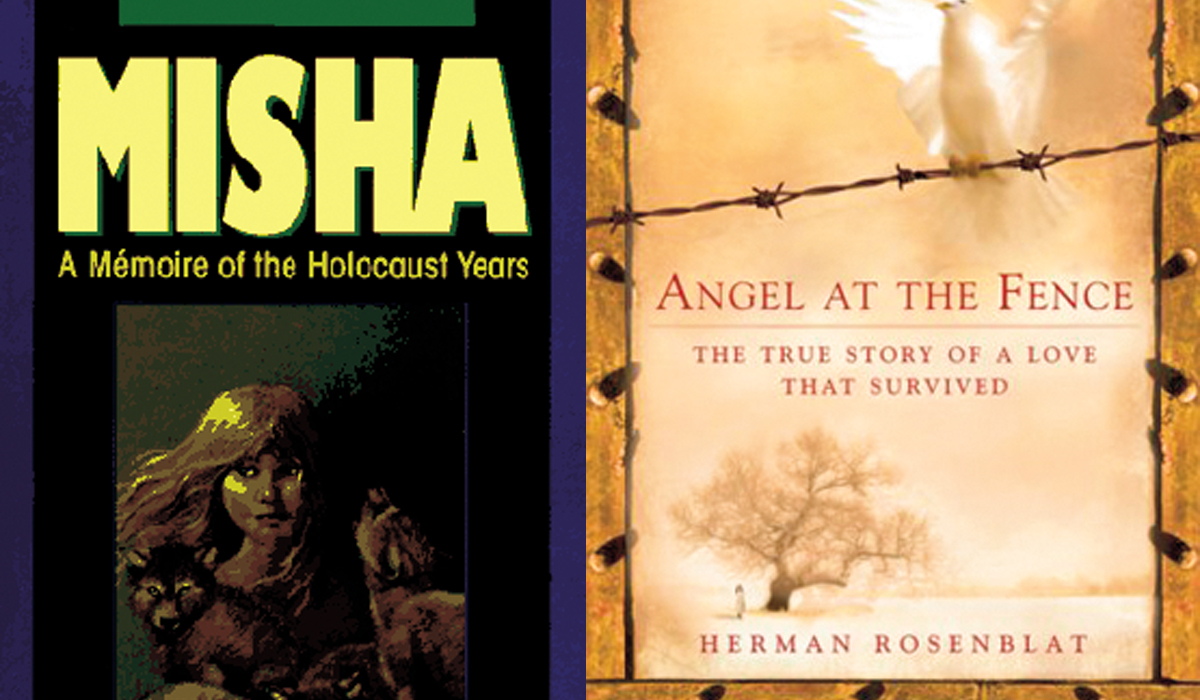In 1997, a woman named Misha Defonseca wrote a book about the four years she spent as a child searching war-torn Europe for her Jewish parents, who’d been deported by the Nazis from Belgium. She’d been sheltered by a pack of wolves and she’d killed a German soldier, a story all the more remarkable and harrowing because she’d been only seven years old when her search began. Misha: A Memoir of the Holocaust Years was an international bestseller, translated into eighteen languages.
A decade later, Herman Rosenblat wrote another wonderfully improbable memoir, Angel at the Fence, in which he recounted how a young girl passed him food through the electrified fence of a concentration camp—a girl he married years later after he met her on a blind date in New York. On her program, Oprah Winfrey called Rosenblat’s romance “the single greatest love story” she’d ever heard, and the film rights to the book sold for $25 million.
Unfortunately, neither story was true. Defonseca admitted as much in 2008, and Rosenblat’s publisher canceled Angel at the Fence two months before its scheduled release in February 2009.
Colleen Fitzpatrick, recruited by a friend, was part of a team that helped expose both frauds. They found a record of Defonseca registering for the first grade in Belgium at a time she’d claimed to be running with wolves. And while Rosenblat had indeed been imprisoned in Schlieben, the team traced his story through his wife’s family—and discovered she was hundreds of miles from that concentration camp at the time. An examination of the camp’s layout and interviews with other survivors, meanwhile, suggested it would have been unlikely—or impossible—for a prisoner and an outsider to get close enough to the guarded, electrified perimeter fence to exchange food.
Fitzpatrick worked pro bono on both cases. Why?
“I don’t want people saying I’m biased,” she says. “I get nothing for this, nothing.” Yet she researched both cases—and is involved in a third possible hoax—because she finds such grievous frauds offensive.
“There are still some of us who care about the truth, and the truth of the Holocaust,” she says. “And I believe that should be kept as true and pristine as possible for future generations.”

Share your comments
Have an account?
Sign in to commentNo Account?
Email the editor